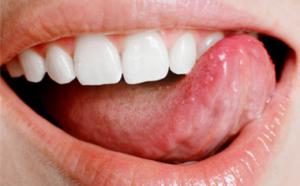Perhaps you’re aware that a complete and balanced diet is essential to improve your short, medium and long term health. But did you know that the quality of your diet may affect your oral health?
A poor diet is not the primary cause of periodontal (gum) disease. However, researchers of the American Dental Association (ADA) have explained that nutrient deficiencies caused by a poor diet, may weaken the body’s immune system and decrease its ability to fight infection. 
This means that a balanced, healthy diet, which includes foods from all food groups (cereals/grains, vegetables, fruits, dairy, meats), is essential for keeping our immune (defenses) system strong and ready to fight infection and disease.
High-sugar content foods, such as candies, sweets, desserts, ice creams, cakes, regular sodas, and juices, leave our teeth more susceptible to the “attack” of bacteria. When bacteria in the mouth come in contact with sugars from food, they produce different acids, which are responsible for causing progressive tooth decay (known as caries or cavities).
The following recommendations are based on those given by the American Dental Association. Make them part of your habits to prevent tooth decay.
- Brush your teeth at least twice a day, using fluoride toothpaste.
- Floss to remove plaque (a film of bacteria) between your teeth and gums.
- Visit your dentist periodically for general checkups and dental cleanings.
- Replace your toothbrush every three to four months.
- Use an antibacterial mouthwash after cleaning your teeth. Besides providing extra protection against cavities, it will give you a fresh breath sensation.
Finally, choose your foods wisely in order to have a healthy diet. Selecting low sugar snacks will not only help you improve your oral health, but also your diet and weight management plan.
Keep in mind that teeth cannot take care of themselves, and they should last a lifetime!
Sources:
American Dental Association (2008). Retrieved in August, 2008 from http://www.ada.org/

